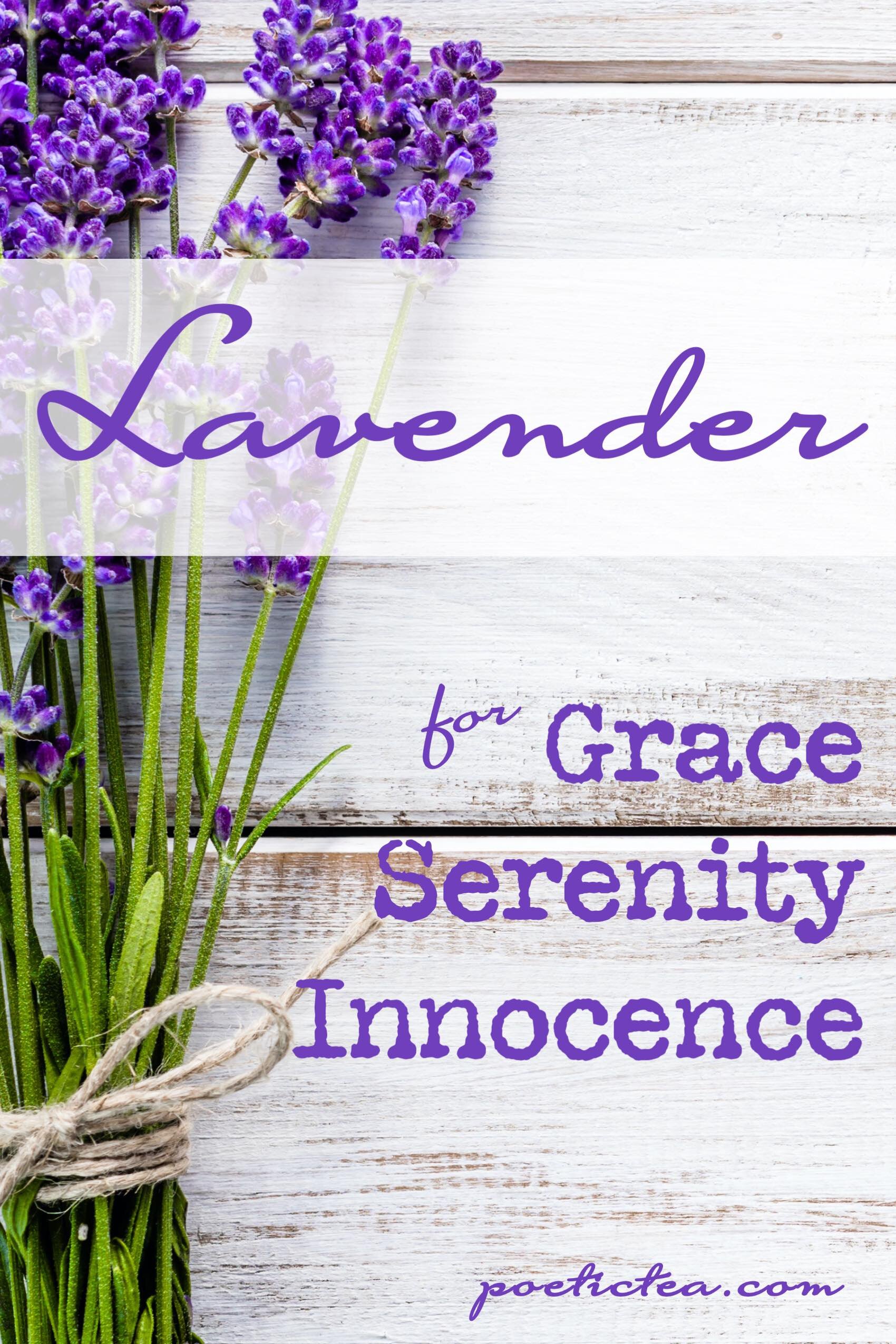Lavender symbolizes serenity and calmness. It is often associated with relaxation and tranquility.
Lavender has been used for centuries in various cultures for its soothing properties. Lavender holds a rich symbolism that transcends borders and time. Its delicate purple hue represents elegance and grace, while its soothing aroma is known to promote relaxation and restful sleep.
In ancient times, lavender was used as an offering to the gods and was believed to bring protection and purification. It has also been associated with love and devotion, making it a popular choice for weddings and romantic occasions. In addition to its calming properties, lavender is also known for its healing abilities. Its essential oil is often used in aromatherapy to relieve stress, anxiety, and insomnia. Lavender can also be found in skincare products, promoting healthy skin and reducing inflammation. Whether used in gardens, bouquets, or essential oils, lavender continues to be a beloved symbol of peace and tranquility, bringing a sense of serenity to those who encounter it.
The Essence Of Lavender
Roots In History
Lavender has a rich history dating back over 2,500 years. Its name is derived from the Latin word “lavare,” which means “to wash,” indicating its use in bathing, perfumes, and cleansing rituals. Ancient Egyptians used lavender in mummification, while Romans used it for cooking, bathing, and scenting the air. In the Middle Ages, it was associated with love and used in weddings and as a strewing herb to freshen the air.
Cultural Significance
Lavender holds deep cultural significance across the globe. It has been a symbol of purity, silence, devotion, and serenity in various cultures. In Christianity, it represents the Virgin Mary’s purity, while in Japan, it symbolizes grace and elegance. Additionally, it is associated with healing and protection, making it a popular choice for aromatherapy and spiritual rituals.

Credit: www.colorwithleo.com
Colors And Meanings
Colors have been used as symbols throughout history, and lavender is no exception. This beautiful color has been associated with various meanings, from purity and calmness to luxury and royalty. In this blog post, we will explore the symbolism and meaning behind lavender and its various shades.
Purple Majesty
Purple is often associated with royalty, luxury, and power. It is no surprise that lavender, a shade of purple, also carries some of these meanings. In fact, in ancient times, lavender was used as a symbol of royalty and nobility. It was also believed to have healing properties and was used for medicinal purposes.
Shades And Emotions
Each shade of lavender has its own unique meaning and symbolism. For example, light lavender is associated with tranquility, calmness, and relaxation. On the other hand, dark lavender is often associated with luxury, sophistication, and elegance.
Here are some other shades of lavender and their meanings:
| Shade | Meaning |
|---|---|
| Pale Lavender | Grace, elegance, and feminine beauty |
| Medium Lavender | Harmony, balance, and emotional stability |
| Dark Lavender | Luxury, sophistication, and power |
Whether you are drawn to the calming effects of light lavender or the luxurious vibe of dark lavender, this versatile color is sure to add a touch of elegance and sophistication to any setting.
Lavender In Mythology
In mythology, lavender is a symbol of purity, devotion, and serenity, with deep meanings attached to love and protection. Lavender’s significance transcends cultures, often associated with healing, tranquility, and spiritual connection. Throughout history, lavender’s symbolism has remained a timeless representation of peace and grace.
Lavender is a flower that has been associated with various symbolic meanings throughout history. The plant has been used for medicinal, culinary, and ornamental purposes, but it also has a rich mythology that is still relevant today. In this post, we will explore the symbolism and meaning of lavender, with a focus on its role in mythology.Greek Lore
According to Greek mythology, the goddess Athena was the first to discover the healing properties of lavender. She used the plant to heal wounds and bruises, and it soon became associated with her wisdom and healing powers. In fact, the name “lavender” comes from the Latin word “lavare,” which means “to wash.” The Greeks believed that lavender could purify both the body and the spirit, and it was often used in religious ceremonies and rituals.Roman Influence
The Romans also valued lavender for its healing properties, and they were the first to use the plant as a perfume. Lavender was often used in the Roman baths and was considered a luxury item. The plant was also associated with love and romance, and it was often used in love potions and spells. Additionally, the Romans believed that lavender could ward off evil spirits and protect against diseases.In conclusion, lavender has played an important role in mythology for thousands of years, and its symbolism and meaning have evolved over time. From the Greeks to the Romans, the plant has been associated with healing, wisdom, love, and protection. Today, lavender is still used for its therapeutic properties, and it continues to be a popular choice for aromatherapy and relaxation.
Credit: www.pinterest.com
Spiritual Connections
Lavender holds deep spiritual connections, symbolizing grace, purity, and calmness. Its soothing aroma is often associated with tranquility and spiritual healing, making it a popular choice for meditation and relaxation practices. Lavender’s symbolism encompasses devotion, peace, and spiritual growth, making it a powerful tool for enhancing spiritual connections.
Healing Properties
Lavender holds deep spiritual connections and is associated with various healing properties. Its calming aroma and gentle energy make it a popular choice for promoting relaxation and soothing the mind, body, and spirit.
When used in aromatherapy, lavender essential oil is believed to have a positive impact on emotional well-being. It is known to alleviate stress, anxiety, and insomnia, allowing individuals to find inner peace and achieve a restful sleep. The soothing scent of lavender can also help relieve headaches and migraines, providing a natural remedy for those seeking relief.
In addition to its calming effects, lavender is often used in skincare products due to its healing properties. It is known for its ability to soothe and nourish the skin, making it a popular ingredient in creams, lotions, and balms. Lavender can help reduce inflammation, heal minor cuts and burns, and promote overall skin health.
Meditative Uses
Lavender has long been associated with meditation and spiritual practices. Its delicate fragrance and calming properties make it a perfect aid for deepening meditation and enhancing spiritual experiences.
During meditation, the scent of lavender can help create a serene and tranquil environment, allowing practitioners to enter a state of deep relaxation and focus. It can help clear the mind, release negative emotions, and promote a sense of peace and harmony.
Some individuals also use lavender as a tool for connecting with their intuition and higher consciousness. Its subtle energy is believed to open the third eye chakra, enhancing spiritual awareness and facilitating inner growth.
Whether used in the form of essential oil, dried flowers, or as part of a meditation practice, lavender can support individuals in their journey towards spiritual enlightenment and self-discovery.
Romantic Associations
The symbolism of lavender extends beyond its calming fragrance and medicinal properties, encompassing a rich tapestry of romantic associations. From love and devotion to wedding traditions, lavender holds a special place in the realm of romance, symbolizing cherished emotions and timeless commitments.
Love And Devotion
Lavender is synonymous with love and devotion, its delicate blossoms representing tender affection and heartfelt emotions. Couples often exchange lavender flowers as a symbol of their enduring love and unwavering commitment, embracing the fragrant blooms as a testament to their deep affection for each other.
Wedding Traditions
In various cultures, lavender plays a significant role in wedding traditions, symbolizing purity, serenity, and eternal love. Brides carry bouquets of lavender to invoke blessings of happiness and fidelity, while lavender-infused decorations adorn wedding venues, imparting an atmosphere of romance and tranquility to the joyous celebrations.
Lavender In Dreams
Lavender in dreams can hold significant symbolism and meaning, offering insights into one’s subconscious thoughts and emotions.
Interpreting Visions
Dreams of lavender may represent peace, tranquility, and harmony, indicating a need for relaxation in your waking life.
Psychological Perspectives
Psychologically, dreaming of lavender could suggest a desire for inner healing or a longing for emotional balance.
Modern Day Usage
Lavender holds significant symbolism and meaning in modern-day usage. Its versatile properties have made it a popular choice in various industries.
In Cosmetics
Lavender is widely used in cosmetics for its soothing and healing properties.
Aromatherapy Benefits
Lavender is a staple in aromatherapy due to its calming and relaxing effects.
Conservation Efforts
Conservation efforts in lavender symbolism meaning focus on preserving and protecting the significance of this beautiful flower. Through sustainable practices and education, we aim to ensure that lavender continues to represent serenity, healing, and tranquility for generations to come.
Sustainable Farming
Lavender conservation efforts include promoting sustainable farming practices.
Protecting Biodiversity
Conservation efforts focus on protecting lavender’s biodiversity.
Lavender conservation efforts are crucial to preserving this versatile plant. Sustainable farming and protecting biodiversity are key initiatives.
Sustainable Farming
Sustainable farming methods help maintain lavender’s growth in harmony with the environment.
Protecting Biodiversity
Preserving biodiversity ensures the genetic richness and resilience of lavender species.

Credit: www.poetictea.com
Frequently Asked Questions
What Is Lavender A Symbol Of?
Lavender is a symbol of purity, devotion, and serenity. It is commonly associated with relaxation and calmness, often used in aromatherapy and spa treatments. The flower’s beautiful color and delicate fragrance make it a popular choice for weddings and other special occasions.
What Does Lavender Mean Spirituality?
Lavender is associated with spirituality, representing purity, silence, devotion, and calmness. It is believed to promote relaxation and reduce stress, making it a popular choice for meditation and prayer. Its soothing scent is said to enhance spiritual experiences and aid in communication with the divine.
What Is The Secret Meaning Of Lavender?
The secret meaning of lavender is often associated with calmness, purity, and devotion. It symbolizes grace and elegance.
What Does The Lavender Flower Mean In Lgbt?
The lavender flower symbolizes diversity and inclusivity in the LGBT community. It represents the beauty and strength of embracing different sexual orientations and gender identities.
Conclusion
Incorporating lavender into your life can bring about a sense of calm and relaxation. Its rich symbolism and meaning have been cherished for centuries. Whether used in aromatherapy, skincare, or home décor, lavender represents purity, tranquility, and healing. Embrace the beauty and benefits of lavender in your daily life.


